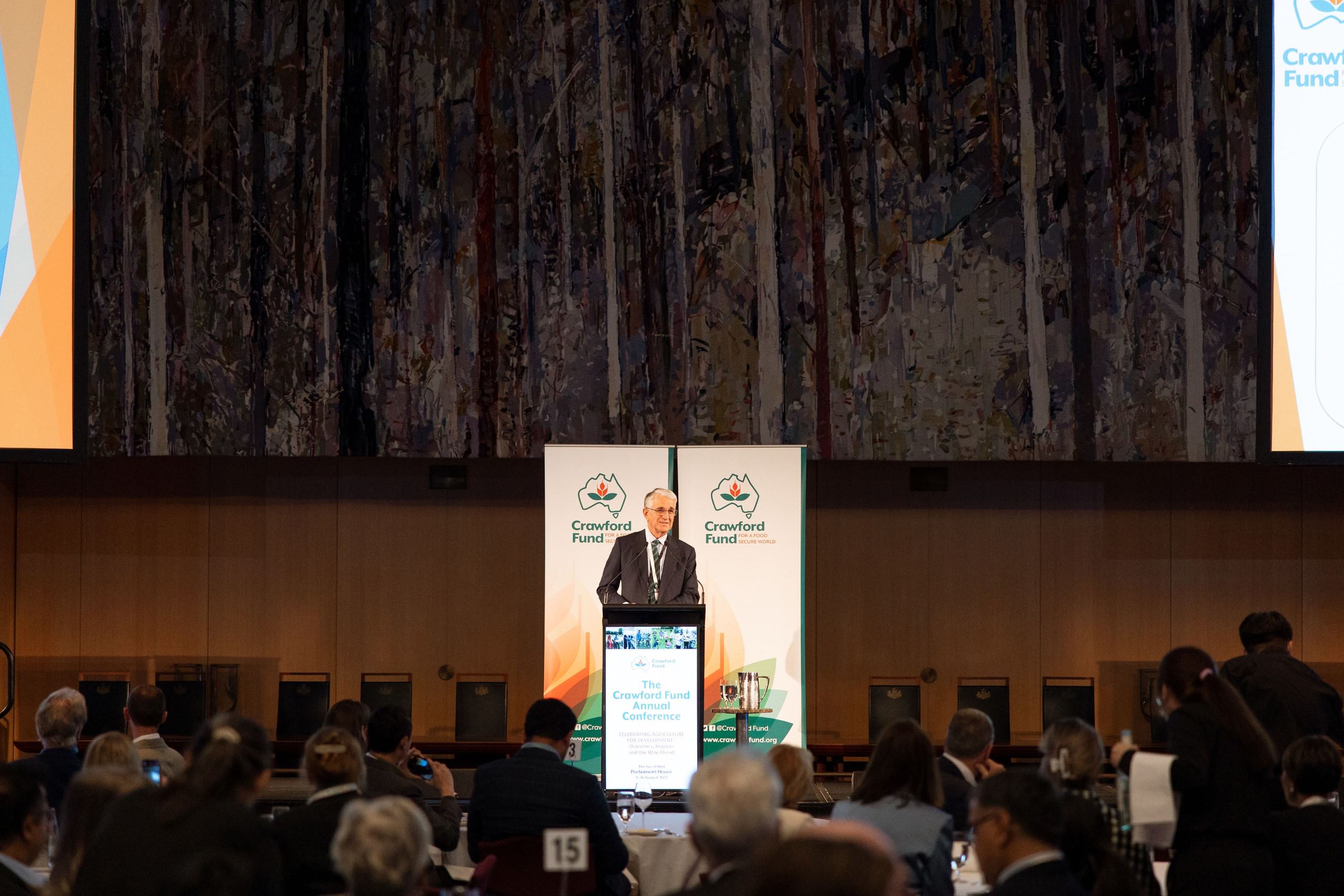

No-brainer to grow the 10:1 returns on investment in agricultural research for development

Two former Ministers for Agriculture, The Hon John Anderson and The Hon Joel Fitzgibbon have affirmed the benefits of aid-funded international agricultural research for development – significant benefits for Australia and for developing countries. As members of the Crawford Fund Board, they voiced the Fund’s call for an increase in the proportion of the aid budget invested in agricultural research, based on two Crawford Fund commissioned reports.
“It’s a no-brainer that more of Australia’s development assistance budget should be invested in international agricultural research. The Crawford Fund’s reports, backed by international analyses, show a ballpark benefit-cost ratio of 10:1 on investment, and many less quantifiable social, environmental, and diplomatic benefits in-country and to Australia. With only 2.5% of the aid budget invested in international agricultural research for development, it is in Australia’s interests to increase the proportion invested to maximise impact and grow those benefits for all,” said John Anderson, who chairs the Fund’s board.
This was the key message presented by Crawford Fund board members The Hons John Anderson and Joel Fitzgibbon, CEO Dr. Colin Chartres, and NextGen alumni Dr. Jenny Hanks in briefings with decision-makers too.
The two commissioned reports Australian Gains from Investment in International Agricultural R&D 2010-2020: Doing Well by Doing Good Report and The Benefits to Australia and to the Global Community from Investing in International Agricultural Research and Development demonstrate that Australian aid-funded agricultural research for development (Ag4Dev) continues to be an outstanding success. A summary of the reports is here.
“Agriculture and food security are front and centre of world attention as we face the complex challenges of climate change, conflicts, and COVID-19,” explained John.
“These challenges exacerbate food insecurity and undernourishment and impact most heavily on the 900 million people already living in poverty. International agricultural research for development is well-targeted, contributes to the food and nutrition security of low-income countries, their environmental and economic sustainability, and resilience, and to gender equity and regional stability. It is also something that Australia is very good at, and it brings significant returns to Australia’s farmers, our biosecurity, scientific knowledge, and global diplomatic reputation,” said John.
Australian investment in R&D for agriculture is mostly through the Australian Centre for International Agricultural Research (ACIAR), which, through strategic partnerships with Australian and overseas institutions, aims to improve the productivity and sustainability of agricultural systems and the resilience of food systems in partner countries. The Crawford Fund works alongside ACIAR to build the capacity of scientists and farmers.
The Fund has brought a spotlight on the benefits from international agricultural R&D since the launch of the book titled “Doing Well by Doing Good”, written by the Fund’s foundation director, Emeritus Prof Derek Tribe AO OBE, in 1991.




